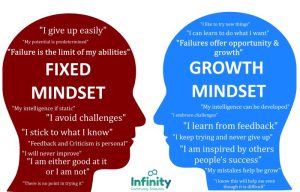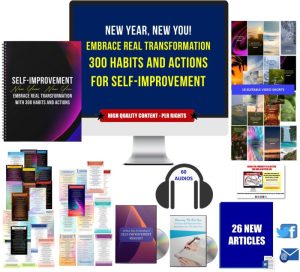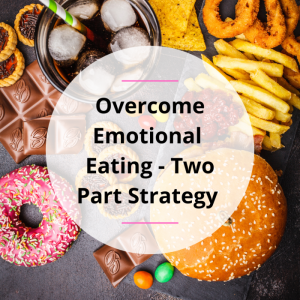Meditation for Stress Relief Find Your Calm

Meditation for stress relief offers a powerful path to inner peace and improved well-being. Stress, a pervasive element of modern life, impacts our physical and mental health profoundly. This exploration delves into the science-backed benefits of meditation, examining various techniques and their applications in managing stress, anxiety, and even depression. We’ll explore how meditation works, its historical context, and practical ways to integrate it into your daily routine for lasting stress reduction.
From understanding the physiological effects of stress – like elevated cortisol levels – to learning specific meditative practices such as mindfulness and transcendental meditation, we aim to equip you with the knowledge and tools to navigate the challenges of daily life with greater ease and resilience. We’ll also touch upon complementary stress management techniques and resources to support your journey towards a calmer, healthier you.
Introduction to Meditation for Stress Relief
Stress, a ubiquitous aspect of modern life, significantly impacts our physical and mental well-being. Chronic stress triggers a cascade of physiological responses, including the release of cortisol and adrenaline, hormones that initially prepare the body for “fight or flight.” However, prolonged exposure to these hormones can lead to a range of negative consequences, such as increased blood pressure, weakened immunity, digestive problems, and even cardiovascular disease.
The constant state of heightened alertness also takes a toll on mental health, contributing to anxiety, depression, and difficulty concentrating.The mind-body connection is a fundamental principle recognizing the intricate interplay between our thoughts, emotions, and physical health. Stress, originating in the mind, manifests physically through the aforementioned physiological changes. Meditation, a practice of focused attention and awareness, offers a powerful tool to influence this connection.
By cultivating a state of calm and inner peace, meditation helps regulate the body’s stress response, reducing the production of stress hormones and promoting relaxation. This, in turn, mitigates the negative physical and mental effects of stress.
A Brief History of Meditation and its Use in Stress Reduction
Meditation practices, in various forms, have existed for millennia across diverse cultures. Ancient techniques like mindfulness meditation, originating in Buddhist traditions, emphasize cultivating present moment awareness without judgment. Other forms, such as transcendental meditation (TM), involve the repetition of a mantra to quiet the mind. The use of meditation for stress reduction has gained significant traction in recent decades, with numerous scientific studies demonstrating its efficacy in managing stress, anxiety, and depression.
These studies often show measurable reductions in cortisol levels and improvements in mood and overall well-being among participants who regularly practice meditation. The integration of mindfulness-based stress reduction (MBSR) programs into healthcare settings further underscores the growing recognition of meditation’s therapeutic potential in addressing the pervasive problem of stress.
Types of Meditation for Stress Reduction

Stress reduction techniques are varied and adaptable to individual preferences and lifestyles. Choosing the right approach can significantly impact the effectiveness of meditation in managing stress. Understanding the core principles and practical steps involved in different meditation styles will empower you to make an informed choice and integrate a beneficial practice into your daily routine.
Mindfulness Meditation
Mindfulness meditation centers on focusing your attention on the present moment without judgment. This involves observing your thoughts, feelings, and bodily sensations as they arise, acknowledging them without getting carried away or reacting to them. The practice cultivates a sense of awareness and acceptance, helping to reduce the impact of stressful thoughts and emotions.The steps involved typically include finding a comfortable seated or lying position, focusing on your breath, and gently redirecting your attention back to your breath whenever your mind wanders.
This process of repeatedly returning your focus to the present moment is central to the practice. Regular practice can lead to improved emotional regulation and a greater sense of calm.
Transcendental Meditation (TM)
Transcendental Meditation involves the use of a personalized mantra, a sound or word, repeated silently to quiet the mind. Unlike mindfulness meditation, which focuses on observing thoughts, TM aims to transcend thoughts altogether, reaching a state of restful alertness. This technique is often described as effortless and deeply relaxing.The steps involve learning a specific mantra from a certified TM instructor and practicing twice daily for 20 minutes, sitting comfortably with eyes closed.
The mantra acts as an anchor, allowing the mind to settle into a state of deep relaxation while remaining awake. The long-term benefits are often reported to include reduced stress, improved sleep, and increased creativity.
Guided Meditation
Guided meditation uses a verbal guide, often an audio recording, to lead you through a meditation session. The guide may offer visualizations, affirmations, or instructions for focusing on specific aspects of your experience. This type of meditation can be particularly helpful for beginners who find it challenging to meditate independently or for those who prefer a more structured approach.The steps typically involve finding a comfortable position, listening to the guided meditation recording, and following the instructions provided by the guide.
The guide might direct your attention to your breath, body sensations, or mental imagery, helping you to cultivate a state of relaxation and focus. Guided meditations can be tailored to address specific issues, such as anxiety, sleep problems, or pain management.
| Technique Name | Description | Benefits |
|---|---|---|
| Mindfulness Meditation | Focusing on the present moment without judgment, observing thoughts and sensations. | Improved emotional regulation, increased self-awareness, reduced stress and anxiety. |
| Transcendental Meditation (TM) | Using a personalized mantra to transcend thoughts and reach a state of restful alertness. | Deep relaxation, reduced stress, improved sleep, increased creativity. |
| Guided Meditation | Following a verbal guide through a meditation session, often involving visualizations or affirmations. | Ease of access for beginners, targeted stress reduction, improved focus and concentration. |
Benefits of Meditation for Stress Relief

Meditation’s effectiveness in stress reduction isn’t merely anecdotal; it’s backed by a growing body of scientific research demonstrating its positive impact on both mental and physical well-being. This evidence highlights its ability to alter physiological responses to stress, leading to tangible improvements in overall health.The practice of meditation has been shown to elicit a cascade of beneficial effects within the body, counteracting the detrimental effects of chronic stress.
This is achieved through a variety of mechanisms, including changes in brain activity and the modulation of the body’s stress response system.
Cortisol Level Reduction and Other Physiological Markers of Stress
Numerous studies have demonstrated a correlation between regular meditation practice and lower cortisol levels. Cortisol, often referred to as the “stress hormone,” is released by the adrenal glands in response to perceived threats. Elevated cortisol levels over prolonged periods contribute to various health problems, including anxiety, depression, weakened immunity, and cardiovascular issues. Research using saliva and blood samples has consistently shown that individuals who engage in mindfulness meditation, for example, exhibit significantly lower cortisol levels compared to control groups.
Furthermore, studies have shown reductions in other physiological markers of stress, such as heart rate variability (HRV), blood pressure, and inflammatory markers. Improved HRV, indicating better regulation of the autonomic nervous system, is a key indicator of reduced stress and improved cardiovascular health. The decrease in blood pressure observed in meditators suggests a protective effect against hypertension and related complications.
The reduction in inflammatory markers underscores the impact of meditation on the immune system, strengthening its ability to combat illness and disease.
Personal Testimonials and Case Studies Illustrating the Positive Impact of Meditation on Stress, Meditation for stress relief
While scientific data provides a strong foundation for understanding the benefits of meditation, personal experiences offer a powerful testament to its transformative power. One individual, a high-pressure executive constantly battling deadlines and demanding clients, reported experiencing significant relief from anxiety and improved sleep quality after incorporating daily meditation into his routine. He noted a decrease in irritability and a greater sense of calm, allowing him to handle stressful situations with more composure and efficiency.
Another case study involved a college student struggling with exam-related stress and anxiety. Through guided meditation exercises, the student reported a reduction in racing thoughts, improved focus, and a more balanced emotional state. This allowed for better concentration during studies and reduced feelings of overwhelm. These examples, while not exhaustive, illustrate the wide-ranging applications of meditation in managing stress across diverse populations and circumstances.
The consistent theme across these testimonials is a marked improvement in emotional regulation, cognitive function, and overall well-being.
Ultimately, incorporating meditation for stress relief is a journey of self-discovery and empowerment. By understanding the mind-body connection and actively practicing techniques tailored to your needs, you can cultivate a profound sense of calm amidst life’s storms. Remember that consistency is key, and even short daily sessions can yield significant benefits. This exploration has provided a framework for understanding the power of meditation, but the true reward lies in the practice itself.
Embrace the journey, and discover the transformative potential of inner peace.
FAQ
How long does it take to see results from meditation?
Results vary, but many experience reduced stress and improved focus within weeks of regular practice. Consistency is key.
Is meditation right for everyone?
While generally beneficial, individuals with certain mental health conditions might need guidance from a professional before starting a meditation practice.
What if I find it difficult to quiet my mind during meditation?
It’s normal for thoughts to wander. Gently redirect your focus back to your breath or chosen focal point without judgment.
Can meditation replace therapy or medication?
No, meditation is a complementary practice. It shouldn’t replace professional medical advice or treatment for mental health conditions.
Where can I find guided meditations?
Many apps (like Calm or Headspace) and online resources offer guided meditations for various purposes.





